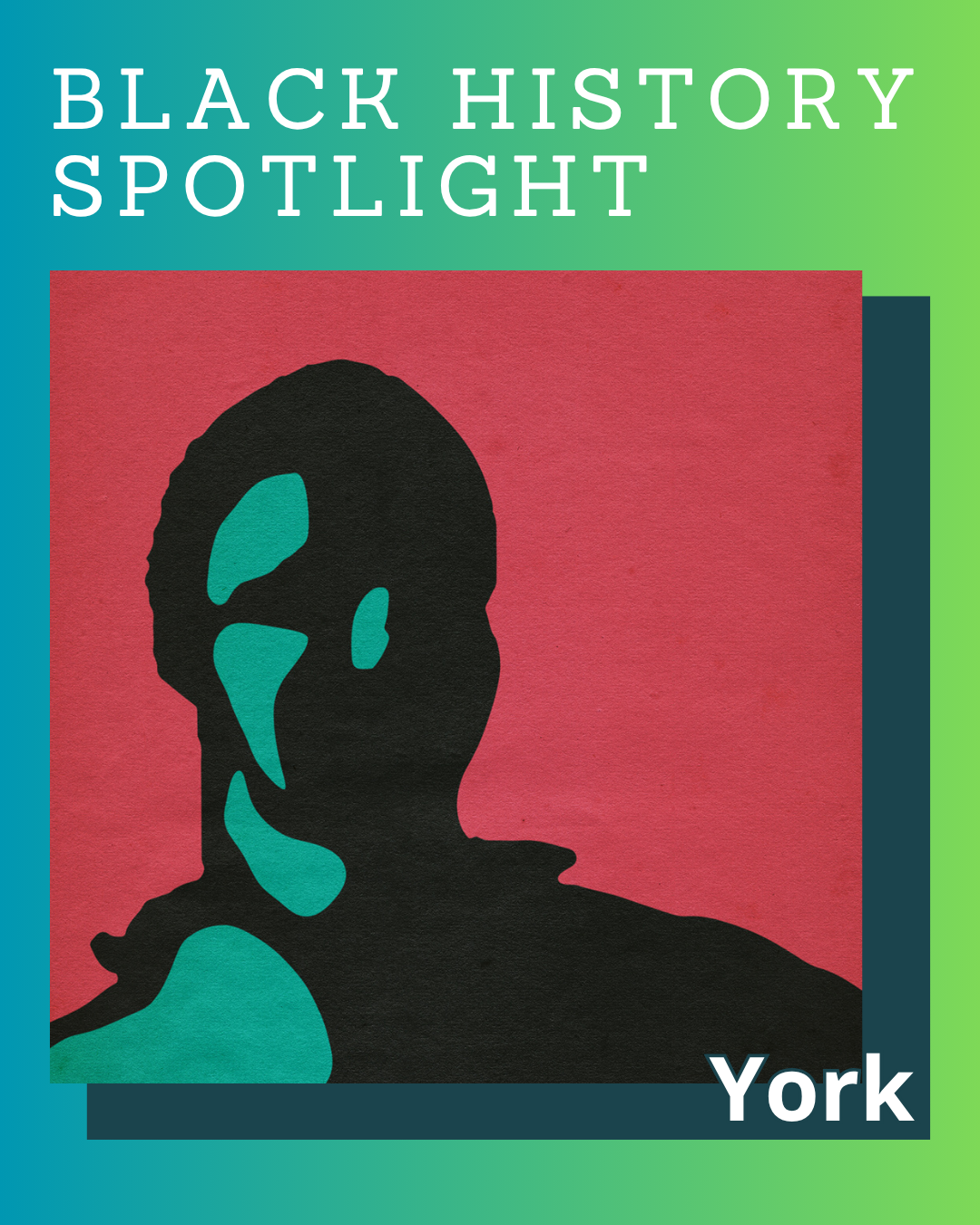York was a member of the Lewis and Clark Expedition, and was the first African American to explore the American West. He was born around 1772 on the Clark family plantation in Caroline County, Virginia. York was part of an enslaved family along with his father, known as Old York, Old York’s wife Rose, and four other children.
York was about the same age as the Clark family’s youngest son, William. The two boys grew up together and were probably childhood playmates. Once they were teenagers, York was made William’s body servant, responsible for attending to William’s personal needs.
The Clarks moved to Louisville, Kentucky, in 1778 and established a plantation called Mulberry Hill. York worked there tending crops and livestock while William was away for military service. By the time William returned in 1796, York had become a tall and capable man, skilled in backcountry survival skills like hunting, fishing, and navigation. Around 1802, York married an enslaved woman from a nearby plantation, although her name is unknown.
In 1803, William Clark joined Meriwether Lewis in leading the US expedition through the newly-acquired western territories and on to the Pacific. William chose to bring York along, making him the only Black member of the party. York proved to be one of the group’s best hunters, and was a caretaker to Sergeant Charles Floyd and Sacagawea, a Shoshone woman who joined the group in North Dakota and gave birth on the trail.
The Native nations of the west were fascinated by York, as many had never seen an African American before. “the Greatest Curiosity to them was York” wrote Sergeant John Ordway on Oct. 15, 1804. “All the nation made a Great deal of him.” Some tribal leaders referred to York as “big medicine” for his incredible stature and appearance.
After a grueling 18-month journey, the explorers reached the Pacific Ocean in fall 1805. When deciding where to spend the winter, Lewis and Clark invited every person—including York and Sacagawea—to vote for their preferred site. This represents the first known occasion when a Black man, or a woman, was given an equal vote to White men in a federally-administered poll.
Upon returning to St. Louis in 1806, York requested his freedom after years of loyal service. However, Clark refused. After accepting a federal post in St. Louis, Clark relocated with his family and those he enslaved, separating York from his wife in Louisville. Tensions grew as York’s resentment deepened. Clark beat York and had him jailed, eventually hiring him out to other enslavers in Kentucky. Records show that York was still enslaved and working as a wagon driver as late as 1815.
York’s later life remains unclear. In 1832, William Clark claimed he freed York years earlier, and that he had since died of cholera in Tennessee. Another account, also from 1832, comes from a fur trader who found a Black man presenting himself as York living among the Crow tribe. Regardless of his actual fate, York’s journey is the origin of Black history in many states, and he is remembered as a pioneering explorer and ancestor.

